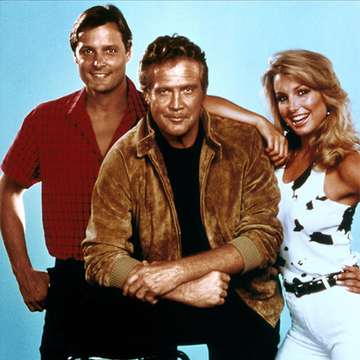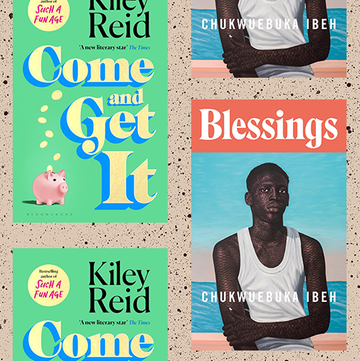Netflix users only needed to hear the rumour that it might be about to interrupt their evening binges with adverts for the cancellation threats to start.
"I'm not angry, I'm just disappointed. I hope you'll reconsider this," said one user on Twitter. "I pay a tenner a month for the luxury of not having ads," fumed another.
It's true Netflix screened some adverts this week, but rather than the dog food commercials people feared, it was just testing out some teasers for their Original content which users were free to skip past.
"We are testing whether surfacing recommendations between episodes helps members discover stories they will enjoy faster," Netflix said in a statement.
So: just a load of fuss of nothing? Not quite. It would be easier to believe Netflix were genuinely just trying to help us stumble upon the next Stranger Things if their finances didn't suggest getting their users used to interruptions would be a smart idea.
Last week, company's share prices sunk to the lowest level for more than three months and its Chief Financial Officer of 14 years, David Wells, announced he was stepping down. These developments come as Netflix's long-term debt has ballooned from $2.5 billion to $8.34 billion while, at the same time, they are projected to spend an eye-watering $13bn on original programming this year.
And yet, paradoxically, as company CEO Reed Hastings told Business Insider in April "Netflix last quarter was particularly good, with results greatly exceeded the expectations of analysts. [We] gained 7.4 million new customers in the first months of the year."
So which is it? A company drowning in debt or a disruptor turned commercial behemoth out to revolutionise the film industry? In truth, a bit of both.
Netflix is adding record users but its flawed subscription model - which allows six devices linked to a single account - means its business model needs a serious overhaul. The problem is that in doing so it will risk looking more like the traditional entertainment industry it set out to dislodge.
Even if the company maintains its rejection of traditional advertising, it's hard to see how their 'everything for next to nothing' model can continue forever. A report this week found 35% of millennials share passwords for sites such as Netflix or Hulu with a further 19% of Generation X and 13 percent of Baby Boomers admitting to the same trick.
Cracking down on password sharing or limiting the number of devices on one account shouldn't seem unreasonable and yet tightening up on this issue likely won't wash well with users who, according to CNBC's report, "want ease of access and ease of use on their dime at their convenience."
Alternatively the site could, as they have done incrementally in the past, increase the subscription cost. Netflix still represents incredible value for money: with a plan that starts at £5.99 a month, it gives users a wealth of content for what is still considerably less than the cost of a single cinema ticket.
Another option might be to move away from the free-for-all model towards more carefully limiting the availability of their films and TV shows, following the example of American company MoviePass. The cinema subscription service were recently forced to do so after trialling an unlimited $9.95 a month deal that almost sunk the company. The question with both these seemingly sensible options is whether a user base thus far spoiled on limitless, low cost viewing will go along with the ride.
When Netflix was in the game of simply providing a platform for other studio's television and films, its pricing model made more sense. But their plan was always to make their own original content. And the fact Netflix is now trying to compete with studios in festival competitions only adds further complications that threaten to shake up the service.
This year they will release Roma, a black and white reflection on social upheaval set in 1970's Mexico City and helmed by Gravity director Alfonso Cuarón. It is their biggest play yet for a major award category contender and reports suggest they are changing their minds about releasing it in cinemas as a result.
Though requirements vary according to festivals, major awards still require films to be released in commercial cinemas to compete. Netflix want to be able to release in cinemas and on the streaming service simultaneously, but there are regulations around distribution which prevent this - as they discovered when they were shut out of the main competitions at Cannes film festival this year.
So what's the best play here? Abandon hopes of Oscar-led legitimacy, or play the game and go for a theatrical release, risking users feeling betrayed at the prospect of having to pay for a cinema ticket as well as their subscription fee?
"If you're in the theatres in France, you can't be on Netflix for three years," Hasting said, summing up the dilemma. "Our members pay for the films, so we're not going to delay it for them. We have to be member-first."
Whatever it decides, Netflix appears stuck between a rock and a hard place. The online reaction from users this week suggests they won't tolerate adverts, and are unlikely to appreciate paying more to see its golden goose content in the cinema instead of on their laptop.
This could change, as user habits often do over time. But either way the early promise of Netflix - of being able to pick from thousands of shows on an account still paid for by your ex-girlfriend and wile away hours uninterrupted - appears to be coming to be an end. As with so many online disruptors before it, economic realities meant the near-utopia of Netflix was never going to last forever.














